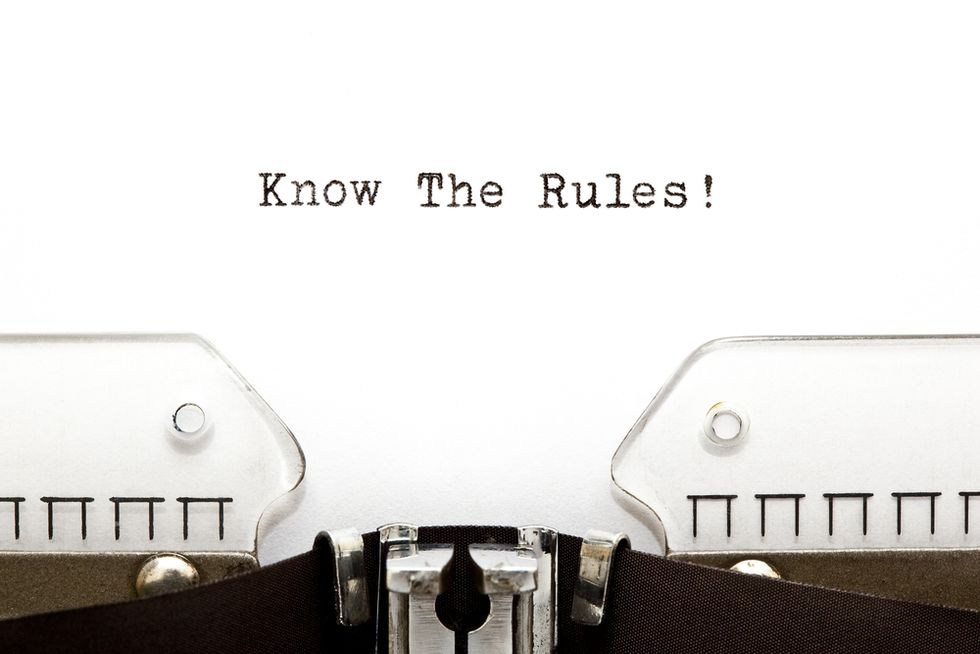
“Always listen to experts. They’ll tell you what can’t be done, and why. Then do it.” – Robert A. Heinlein, Time Enough for LoveRelated: Top 10 Resume Trends For 2014 The first rule of resume writing is that there are no rules. Resume writing, in that sense, is a Zen-like experience, and the closest thing to a rule you’ll encounter is the one that says, “Write tight.” But that’s true of all writing, not just resume writing. You should never waste words. Words gain power the more sparingly they are used. Why use two words when one can do just as well? Everything else about writing a powerful resume isn’t rules but more a set of guidelines for what will get you the attention of the all-important hiring manager. Does your resume have visual appeal? Is it in an attractive, easy-to-read, 12-point font (or even 13- or 14-point, depending on the font)? Is there plenty of white space? Are your headlines or section breaks clearly delineated from the body of the resume? Beyond the esthetics, there’s the “meat” of the resume itself. What kind of lead have you written? Does your copy above the first fold in the page compel the reader to continue through the resume? I recently reviewed a resume wherein the entire top third was taken up by contact information and a photograph of the applicant. That’s nearly four inches of prime resume “real estate” gone to waste to serve the job seeker’s vanity. That applicant should have used that space for a simple yet powerful description of who he was and how he could alleviate the “pain” that had led to the job opening. Farther into the body of the resume, is there clear demarcation between the sections of the document? In other words, can the reader easily tell where the Introduction ends and the Accomplishments and Skills section begins? Most important of all, does your resume show accomplishments, or merely job duties? Do you show proof of your claim to “strong detail orientation,” or “leadership skills”? What about “communication skills”? Anyone can claim they have strong communication skills; but what does that mean, exactly? Conducting sensitive contract negotiations with union shop stewards or representatives of new suppliers takes one type of communication skills; directing a group of workers laying eight-inch poly pipe requires an entirely different set of such skills. They’re both communication skills. But do you see how important it is to describe each as a discrete activity, and not simply place them under the blanket category of “communication skills”? In fact, throughout your entire work history, I advise you to add the phrase “So what?” after each bullet point, and answer the question. That’s one way to determine if what you’ve written is an actual accomplishment or simply a job duty. Employers don’t buy job duties, they buy accomplishments, results. They already know what the job duties are. Your goal is to show your potential employer how you achieved solid results at every job you worked at, how you made each job your own, and left each job better than it was before you arrived. Which engineer would you hire: The one who says, “Responsible for utility plant waste water upgrade project for the instrumentation scope, basic engineering review, detailed engineering review and recommendations, along with engineering and project management team”? Or the one who says, “Installed cutting-edge waste water treatment system that cut annual hazardous waste expenses approximately $150,000”? Do you see how this turns the message into a vibrant statement about what you will do for the potential employer? Watch any TV commercial: whether it’s for shampoo, a household cleaning product, soap, or whatever. The commercial isn’t about the product’s history or about what it’s made of. No, when they’re selling you shampoo, for instance, they sell you on how great your hair will look when you use the product. You want to paint a picture in the employer’s mind of you meeting the employer’s needs, so that before s/he is even finished reading the resume, that employer is at least thinking of bringing you in for an interview. For years, Palmolive dish detergent ran commercials showing a manicurist using the product to soften her customers’ hands. Yes, there are no “rules” for writing resumes. There are, however, certain guidelines to be followed. Following these guidelines will help ensure that your resume winds up in the hiring manager’s “Yes” pile.









